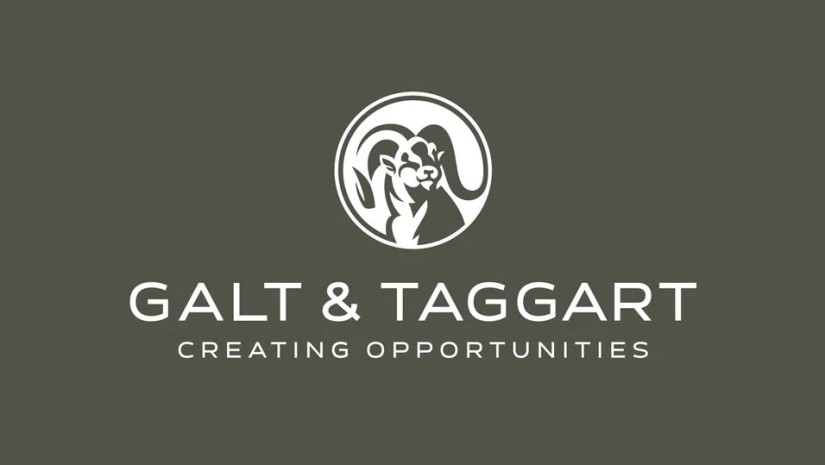G&T published Global Markets Weekly Update. According to the document:
USA
Global chip stocks fell sharply with ASML, NVidia and TSMC hit amid reports of tighter export restrictions from the U.S. and a ramping up of geopolitical tensions:
The S&P 500 and the Nasdaq tumbled on Wednesday as plunging microchip shares, in the face of potential escalation of U.S. trade conflicts with China, exacerbated the ongoing rotation out of megacap tech-related stocks. The moves came after Bloomberg on Wednesday reported that the Biden administration is considering a wide-sweeping rule to clamp down on companies exporting their critical chipmaking equipment to China. A report that the Biden administration is considering severe trade restrictions against China sent microchip stocks down 6.8%, which is the biggest one-day drop since March 2020. Comments from Trump, a Republican, added further negative sentiment to semiconductor stocks. The former president said Taiwan should pay the U.S. for defense, in an interview with Bloomberg Businessweek published Tuesday. TSMC got knocked after Donald Trump took aim at Taiwan and its dominance in global chip production. He also claimed Taiwan took “about 100%” of America’s semiconductor business. Investors fear high-flying chip makers will face more U.S. trade restrictions regardless of who wins the November presidential election. Nvidia was down almost 10% during the week, ASML -17%, AMD – 18%, SOXX – 9.5%.
UnitedHealth stock higher despite medical costs, cyberattack hit to profit:
UnitedHealth Group (UNH) shares surged more than 6% on Tuesday after the health insurance giant topped Wall Street’s quarterly earnings estimates and maintained its full-year profit outlook, helping to ease investors’ concerns over the financial impact of a February cyberattack on one of its subsidiaries. The stock was the top gainer on the Dow Jones Industrial Average, which soared to a record high on Tuesday. In the three months ended June 30, UnitedHealth's revenue increased 6.4% year-over-year to $98.9 billion, thanks in part to a 6.1% rise in premiums to $76.9 billion. UNH's earnings per share (EPS) were up 10.7% from the year-ago period to $6.80. These results "reflect diversified and durable growth, and a commitment to ensuring high quality care is available to every person we are privileged to serve," UnitedHealth CEO Andrew Witty said on the company's conference call. "In the first half of the year, revenues grew by nearly $14 billion,
with strong contributions from across the enterprise, led by double-digit growth at Optum. UnitedHealth Group enters the second half of the year with continuing and broad-based growth momentum." The company also said that the total number of people served by its domestic commercial offerings increased 8.8% year-over-year to 29.6 million, while the total number of people served by its Medicare Advantage plans was up 2.3% to 7.8 million. As a result of its performance in the first half of the year, UnitedHealth affirmed its full-year outlook, which calls for EPS to arrive between $27.50 to $28 – a range that satisfies analysts' expectations for earnings of $27.59 per share. UHN was up 7.84% during the week.
Europe
ECB keeps rates unchanged; Lagarde says September decision “wide open”
In local currency terms, the pan-European STOXX Europe 600 Index ended 2.68% lower amid rising trade tensions between the U.S. and China. Among major Continental indexes, Germany’s DAX dropped 3.07%, France’s CAC 40 Index lost 2.46%, while Italy’s FTSE MIB gave back 1.05%. The UK’s FTSE 100 Index declined 1.18%.
The European Central Bank (ECB) kept its key interest rates unchanged at 3.75%, as expected. It said it would not precommit to any rate path and emphasized that economic data would guide its decisions. ECB President Christine Lagarde said a move in September was “wide open,” adding that risks to economic growth were “tilted to the downside” and that inflation would fluctuate at current levels for the rest of the year before declining in the second half of 2025.
ECB says loan demand rises; industrial output falls
The ECB’s Bank Lending Survey for the three months through June showed household loan demand expanded for the first time in two years amid easier conditions on mortgages and optimism about the housing market. The banks taking part in the poll indicated that they expect this trend to continue in the third quarter.
Industrial production in the euro area in May fell 0.6% sequentially, declining for the first time since January, according to Eurostat. However, output dropped 2.9% year over year, with steep falls in Germany, Italy, and France.
UK pay, jobs market still strong, sparking doubts about August rate cut
Headline annual inflation in the UK held steady at 2% in June, partly due to a meaningful decline in energy costs compared with last year. Core inflation, excluding energy and food, remained at 3.5%. Services inflation, which is closely watched by policymakers, stayed at 5.7%.
Average earnings, excluding bonuses, grew by an annual 5.7% in the three months to May, down from 6.0% in April and the lowest level since mid-2022. However, the indicator remained close to double the rate, consistent with the Bank of England’s 2% inflation target.
Japan
Japan’s stock markets lost ground over the week, with the Nikkei 225 Index falling 2.7% and the broader TOPIX Index down 1.2%.
Technology stocks suffered on rising concerns about tighter U.S. restrictions on exporters of advanced semiconductor technology to China, including several Japanese chip makers.
Amid speculation about whether the Bank of Japan (BoJ) could hike interest rates at its July 30–31 meeting, at the same time as it set to provide detail on the tapering of its massive bond purchases, the yield on the 10-year Japanese government bond fell to 1.04%, from 1.06% at the end of the prior week.
The yen strengthened to around JPY 157.37 against the USD from the previous week’s 157.91. The Japanese currency’s second successive weekly gain came after recent suspected yen-buying operations by the government. Japan’s top currency official, Masato Kanda, suggested that there needs to be a response if speculators cause excessive foreign exchange moves. However, authorities typically refrain from immediately confirming whether a currency intervention has taken place, with data due to be released on the final day of July.
On the economic data front, the closely watched nationwide core consumer price index (CPI) rose 2.6% year on year (y/y) in June, up from 2.5% y/y in May but slightly short of consensus estimates of a 2.7% y/y increase. The overall inflation rate, which had been expected to rise, held steady at 2.8% y/y.
Japan’s economic fragility was highlighted by the government lowering its gross domestic product growth forecast for the current fiscal year ending March 2025 to a 0.9% expansion, from a gain of 1.3% projected in January. Much of the downgrade was attributable to sluggish domestic consumption amid rising import costs resulting from the weakness of the yen, which erodes households’ purchasing power. The government also presented its outlook for the fiscal year beginning April 2025, with the economy expected to achieve demand-led growth of 1.2%.














